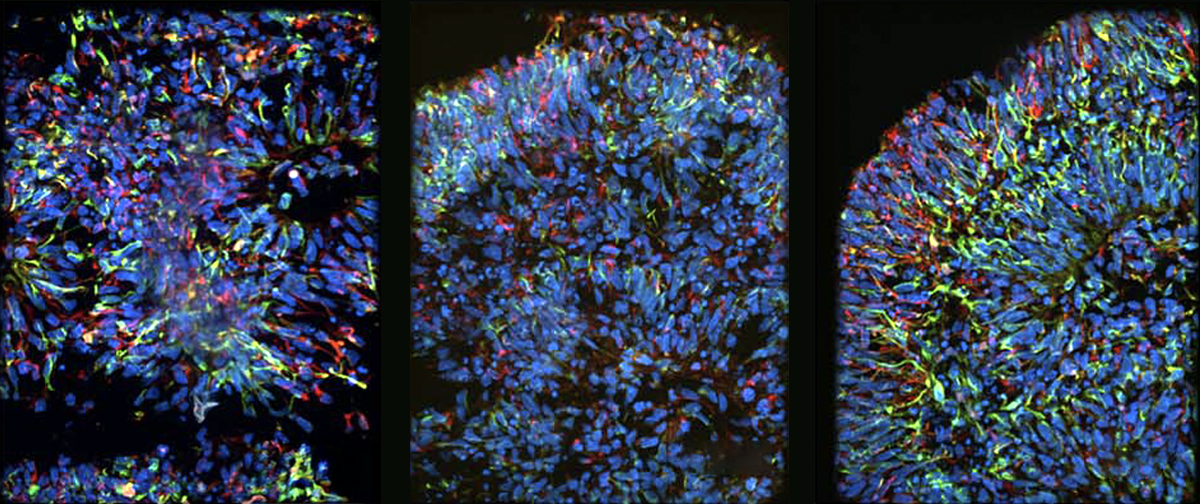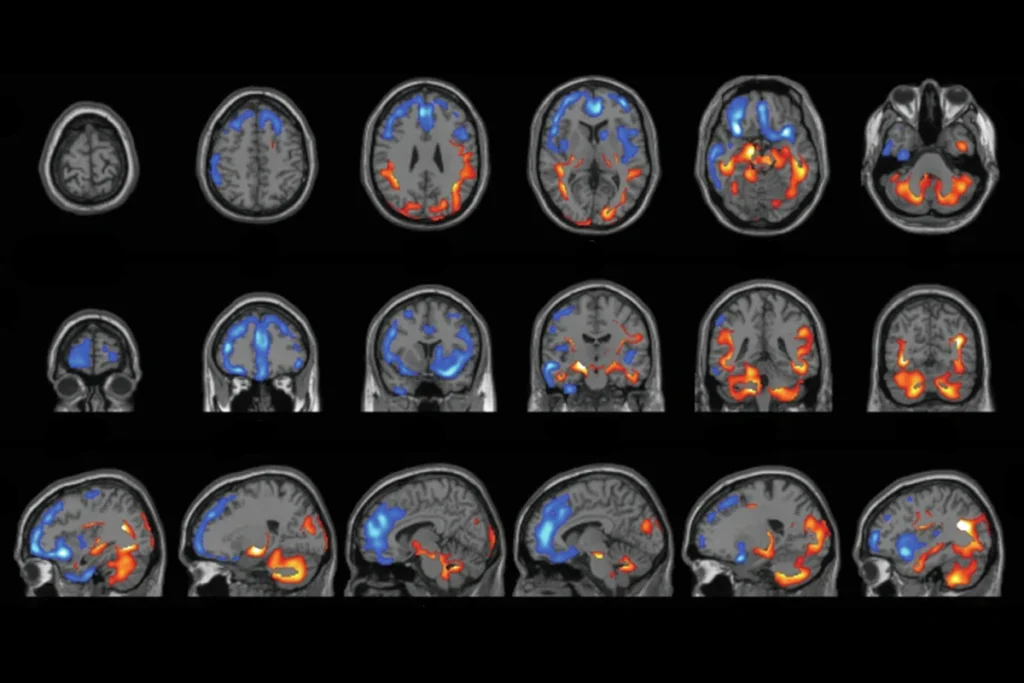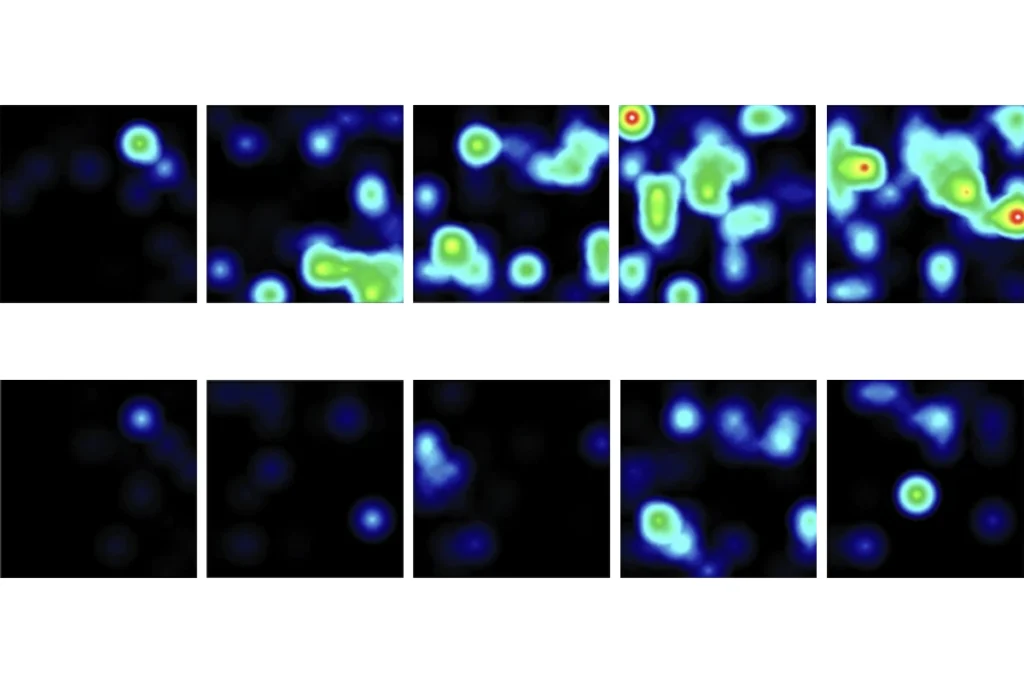- Low levels of CHD2, an autism-linked gene, impair lysosomal activity in human stem cells, and high levels of this gene enhance lysosomal activity in ancestral primate lines, according to a preprint. bioRxiv
- Loss-of-function variants of the autism-linked TSC2 gene alter DNA methylation patterns and protein expression that are linked to lineage commitment and premature electrical activity in stem cell cultures. Human Molecular Genetics
TSC2 gene; cortical thickness; long noncoding RNA
Here is a roundup of autism-related news and research spotted around the web for the week of 10 February.
By
Jill Adams
11 February 2025 | 1 min read

Many paths: Differentiation of stem cells depends on TSC2 gene activity, as seen in neural rosettes cultured from people with two (left), one (middle) or zero (right) functional forms of the autism-linked gene.
- Cortical thickness is associated with IQ scores and autism trait severity in young autistic children with or without intellectual disability. Autism Research
- Long noncoding RNAs can affect the expression of neighboring autism-linked genes in neural progenitor cells, according to a preprint. bioRxiv
- “Here, we articulate the benefit of studying contextual factors, and we offer selected examples of published longitudinal autism studies that have focused on how individuals develop within context.” Autism Research
tags:
Recommended reading

Too much or too little brain synchrony may underlie autism subtypes
By
Calli McMurray
17 April 2025 | 6 min read

Developmental delay patterns differ with diagnosis; and more
By
Jill Adams
15 April 2025 | 2 min read

Split gene therapy delivers promise in mice modeling Dravet syndrome
By
Holly Barker
10 April 2025 | 5 min read
Explore more from The Transmitter

Anti-seizure medications in pregnancy; TBR1 gene; microglia
By
Jill Adams
3 December 2024 | 1 min read

Cerebellum structure; AMPA receptors; MAGEL2 gene
By
Jill Adams
29 October 2024 | 1 min read
Cite this article:
